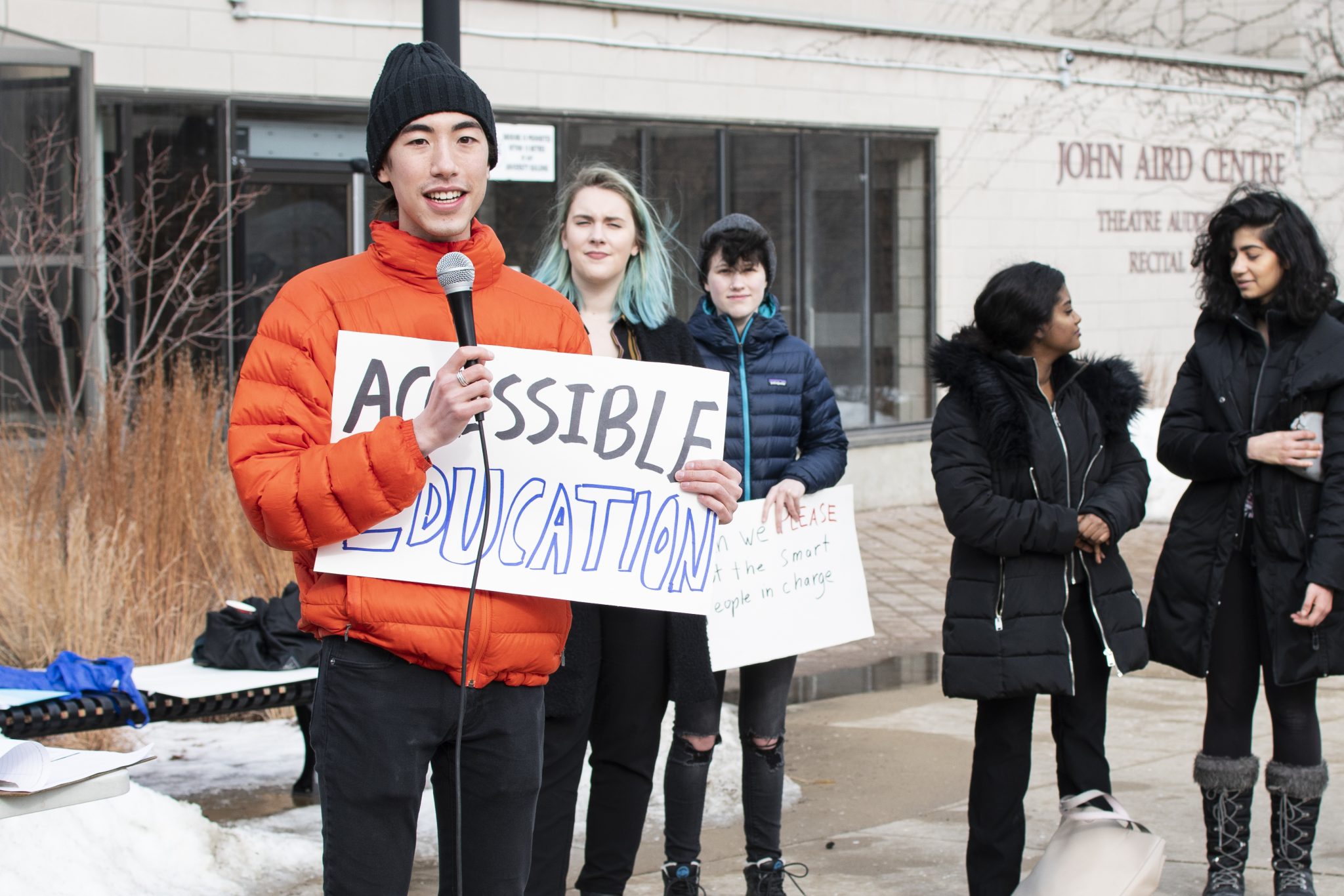OSAP march in Waterloo shows students supporting each other when finances won’t


On Feb. 4, students, faculty and more gathered on Wilfrid Laurier University’s Waterloo campus quad in the continued attempt to make the provincial government and other students aware of their concerns regarding the changes made to OSAP and tuition cuts.
The protest featured speakers, posters, hot chocolate and coffee as people collected to discuss their thoughts and raise awareness about how to petition the government to reverse the tuition cuts, re-institute the loan repayment grace period and make changes to ancillary fee adjustments.
Julia Empey, a graduate student in the English and film studies department at Laurier, knows that although her financial situation is in a reliable and stable place, that might not be the same case for the undergraduate students she teaches.
“I’m deeply aware of many of my undergraduate students are relying on the fact that OSAP was going to be helping with grants — or if they’re from a lower income family, they were going to be able to afford education,” Empey said.
“So seeing that anxiety within my students is why — it’s not about me, it’s seeing how it’s impacting the other people that I know and many of them who I teach.”
As far as affecting change, Empey knows the only way that will happen is if Laurier students come to an understanding about their dissatisfaction with the reforms — and advocate as a collective, unified body.
“Without having supports from student unions and these services, students are going to be put in a grave amount of danger … We all need to be coming together and oppos[ing] them.”
“It’s not enough to talk to your friends about it … students [have to] realize that we’re not as isolated as we want to think: we have power in numbers,” Empey said. “By coming together, we’re having our voices heard at least — and that’s something.”
Though Empey doesn’t know what will happen in the ensuing months due to the provincial government’s shifting stance on a number of issues, she does know that no change will occur if students stay apathetic or indifferent.
Students from outside of Laurier attended the event as well, including Laura Mae Lindo, the member of provincial parliament for Kitchener Centre, who connected with protesters and students to address their collective concerns.
Amanda Fitzpatrick, a student from the University of Waterloo, is one of the service coordinators for the Glow Centre for Sexual and Gender Diversity, an LGBTQ service on the UW campus. GLOW offers resources and supports such as educational workshops, community spaces, discussion groups and safe sex supplies — and support for the lives of queer and trans students.
“We [also] have an incident reporting form, where if students are dealing with homophobia or transphobia on campus we can anonymously deal with the situation,” Fitzpatrick said.
With the changes being made to ancillary fees, giving students the opportunity to opt out of their students’ unions and other “non-essential” determined services on-campus, Fitzpatrick is concerned about compromising the quality of what they offer.
“I’ve been putting in years of effort and unpaid work into running these services and to see people think they aren’t essential and important is really heartbreaking. [But] as sad as it is, it’s very dangerous and a lot of lives are going to be very damaged because of these changes,” Fitzpatrick said.
“Without having supports from student unions and these services, students are going to be put in a grave amount of danger … We all need to be coming together and oppos[ing] them.”
On Feb. 15, there will also be a one-day province-wide walkout organized at the University of Waterloo, between the Dana Porter Library and Arts Lecture Hall, to bring greater attention to these recent changes.


